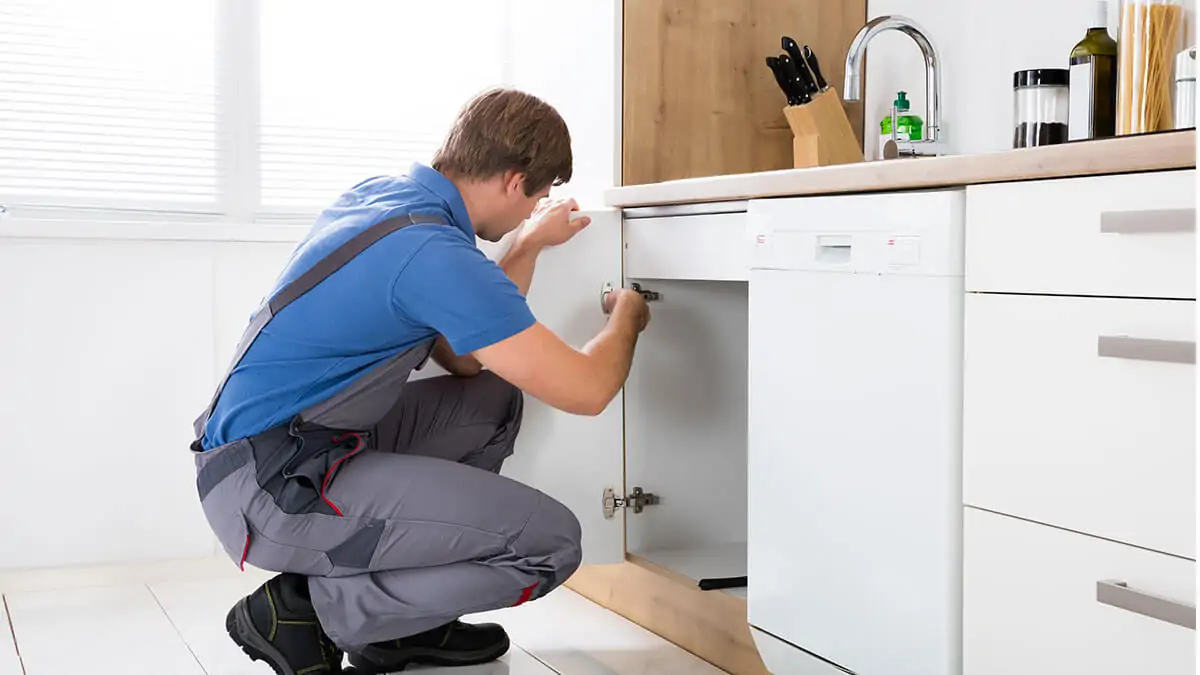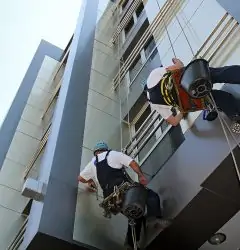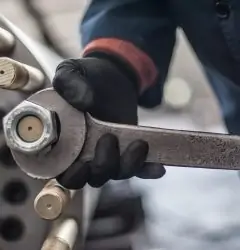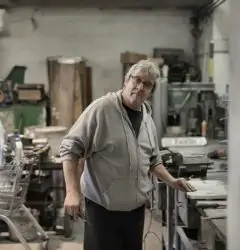31 Aug

Apartment maintenance refers to the process of maintaining residences for multiple families. It requires a good range of maintenance work such as pest control, grounds keeping, cleaning, security, alliance repair, HVAC, and plumbing.
The focus of apartment maintenance is to ensure that the buildings are safe for people to live in and that no kind of risk can put the residents in any danger.
Apartment Maintenance Workers
Small apartment complexes require less number of maintenance workers. Sometimes single person can do all the maintenance tasks. However, larger properties consisting of more than a hundred houses will need more than one worker to handle all the tasks.
Maintenance Technicians
These people are responsible for handling all the tasks and repair work. Their skillsets are diverse. Maintenance technicians deal with both emergency repairs and routine maintenance.
Maintenance Managers
Complexes that have less than a hundred housing units usually do not need more than one apartment maintenance manager, along with two or three team members. These people manage and sometimes handle all the tasks of maintenance of the apartment. Their duties involve planning, assigning, scheduling, budgeting, and complete all the tasks.
For a larger apartment that has more than two hundred units, maintenance managers oversee all the maintenance tasks while their team handles them.
Maintenance Supervisors
Larger residence complexes usually require several technicians, and because of that, they require a maintenance supervisor. Apartment maintenance supervisors organize and schedule daily tasks, ensure that safety standards are met, as well as, oversee all tasks done by technicians
Which Buildings Use Apartment Maintenance?
Apartments are of different sizes, and each of them has its own need for maintenance. Some of these residence complexes types are:
Studios – These are smaller one-room apartments with a bathroom and a kitchen along with a combination of the dining room and living room.
Walk-Up – These apartments are the ones that have no elevator.
High-Rise – Some residence complexes have more than just twelve stories. These require an elevator in each of its buildings.
Lofts – These are popular for their spaciousness. Lofts have exposed rafters and high ceilings.
Duplexes – Complete housing units in pairs that are located on entirely separate floors or share a wall in between.
Triplexes – These apartments feature three stories and have separate units on each floor.
Garden Apartments – These are ground floor apartments, which provide access to a lawn or a garden.
Maintenance Tasks Covered By Apartment Management
The repair that management of an apartment covers always involves prominent issues based on local laws. However, it also deals with everyday problems. Let’s see some apartment repair and maintenance tasks that are covered by the management of an apartment:
Water Damage and Leaks
Does your neighbor upstairs have an overfilling bathtub or leaky fridge that has resulted in a leak in your house, or maybe something worse like severe water damage? You can call the property manager, leasing office, or your landlord to get this problem fixed as soon as possible. If the water damage has done serious damage to your belongings, it can become a case of renter’s insurance. Make sure you check your lease and your policy and discuss the problem with your landlord or property manager to see what can be done.
HVAC Repairs
It is quite irritating when your AC is not working properly, and your apartment feels humid because of a lack of ventilation. However, you do not have to worry. The management of the apartment covers HVAC repair. You just need to call your property manager or landlord and let him know about the fault in your HVAC system. They will repair it as an emergency repair task.
Plumbing Issues
Having trouble in your toilet? If your plunger is not helping you enough with your problem, know that you need to call the management and let them fix the plumbing issues. Do not think it is your problem and that you have to fix it on your own. If you see your toilet running constantly, it is a serious problem, and you should contact the property manager for putting in a maintenance request.
Pest Control
No one likes pests in their house. It is not only disgusting but also if we avoid them for a long time, it can lead to a serious pest problem. Therefore, if you see any rat or mice, roaches, ants, spiders, or any other pest, it is time for you to call the management to let them know about the issue. Either they charge you for pest control monthly fee, or the management offers it free. Whatever the case is, you must never hesitate to contact the maintenance team for this issue.
Appliance Repairs
Freezer not working? Or is your dishwasher out of order? Do not worry. Just give a call to the maintenance team and let them know you have a problem. If you have the appliance with the apartment, it means that the management will fix it for you. However, the management is not responsible for fixing appliances that you have bought yourself.
Window or Door Locks
If you see any broken locks such as your front door’s lock, it is a big issue, and you must get this issue fixed as soon as possible. If you are unable to lock your apartment from outside or inside, it poses a huge safety concern. Give a call to the maintenance department of your apartment and put in a request to fix your broken window or door lock. Do take the matter in your own hands and let a professional do it.
Routine Maintenance to Unit
Your apartment will have routine maintenance every six months to once a year. This involves checking your fire extinguishers, smoke detectors, air filter cleaning, etc. The apartment management is responsible for this routine maintenance. You will receive an email, message, call, or a note on your apartment’s door about it.
Preventative Maintenance Checklist for Apartments
If you are a renter, you might not have to spend a lot on maintenance costs; however, it does not mean that you are free from any responsibility. Throughout the time you are living in the apartment you have rented, you must keep up with the apartment preventative maintenance checklist to ensure that you walk out of the apartment with your deposit.
Here are some basic things that are included in a preventative maintenance checklist or apartment damage checklist:
Paint and Walls
Filling all nail holes in drywall.
Make sure there is no moisture damage or doorknob holes in drywall.
Make sure your return the apartment in the paint you received it in if you have painted some other color after you moved in. If you have installed extra cabinets, make sure you remove them and fill the holes.
Decks and Porches
It is normal for porches to become damaged if you ignore them for a while, so make sure you keep fixing the issues from time to time to avoid being handed a bill by your landlord. Most of the time, porch issues will be all about wear and tear. However, the following things are essential for you to maintain:
- Checking the base of spindles, railings, banisters for signs of rot.
- Checking handrails or the porch’s base structure for any loose wood.
- If you see any damage, communicate with your property manager as soon as possible.
If you are responsible for any porch or deck repair, make sure you fix it in time. Otherwise, you can lose a good chunk of your deposit.
Doors
A malfunctioning or broken door is going to create some serious troubles for you; hence, you should keep the following tips for preventative maintenance in mind:
- Check whether the hinges are lubricated and in proper working conditions.
- Ensure the chain lock has tightly secured the wall and door.
- Check the deadbolt to ensure it is working without any hiccups or snags.
Windows
Your landlord or leasing officer will be responsible for maintaining your windows as long as the window glass is fine and not broke because of your carelessness. You do not have to worry about minor wear and tear, or any smudges. However, you must make sure that your window is in good condition:
If you see any chips or cracks in your windows, quickly report to your landlord.
Beware of double pane foggy windows that are insulated with broken or damaged seals.
Make sure you check the screen periodically for any tampering or damage, and if you see any issues, communicate them to your leasing officer.
Carpets and Floors
The lifespan of carpets is six to seven years. However, most landlords prefer to shampoo the carpet or replace them after each renter moves out of the apartment. Additionally, most apartment complexes take responsibility for carpet maintenance, but the renters have some role in considering as well:
- Cleaning up spills, any stains, and pet accidents.
- Regular vacuuming.
- Using rugs in those areas of your house where you have high traffic usually to avoid wear.
Garbage Disposal
To keep the garbage disposal in proper working conditions, you must know what you can and cannot put down them. Here is what you need to know:
- Avoid putting starchy peels down your garbage disposal as they can clog your pipes.
- Some vegetables have stingy fiber that can get entangled in your blade, and your garbage will be stuck there damaging the motor.
- Avoid putting down bones.
- Fruit pits and seeds can bring havoc on your garbage disposal, and the repair can cost you a lot.
- Eggshells can lead to clogging and creating damage.
- Avoid putting down grease.
Refrigerators and Ovens
If you are just a tenant, you might overlook these necessary appliances. However, your landlord never forgets about them. Therefore, you need to maintain these appliances using a preventative maintenance checklist and avoid paying extra for when they stop working completely:
- Deep cleaning your oven. Use vinegar and baking soda to create a cleaning paste.
- Clean your freezer and fridge periodically.
- When moving out, clean your fridge, you must not leave any food in it, also defrost the freezer.
Counters and Cabinets
Do not ignore stains of water on counters and cabinets. If you see any when you move in, make sure it is not because of any structural issue or leak. You must check the following:
- Check for any signs of dampness around counters and cabinets.
- Check for any leaks on the area surrounding faucet and sink.
- Ensure that your cabinets are disinfected every few months.
- Do not hang damp towels over the doors of your cabinet.
Miscellaneous Apartment Maintenance Tasks
Here are some basic apartment maintenance tips for you:
Ensure to test your carbon monoxide and smoke detectors. See if they are working fine or not.
Remove the sliding screen door off the rollers when moving out to avoid any damage as you are taking all your belongings out the door, and you want to avoid any accidents resulting in property damage.
Communicate all the issues with your property manager or landlord.
Check the light switches to see they are working fine or not. You must check them before you are moving out.
What Is Emergency Maintenance?
A maintenance emergency refers to anything that if, not repaired or fixed right away, can lead to severe damage, injury and can cause serious damage to the property. Apartment emergency maintenance can include flooding, broken water line, or a gas leak.
Apartment Maintenance Certifications And Training
Following are the most popular apartment maintenance certifications and training:
CAMT Certification – the National Apartment Associated (NAA) awards this to individuals who manage to complete their training, achieve twelve months’ experience in maintenance of the apartment, and clear a final exam.
NAHMT or NAHMS Credentials – this certification is provided by the National Affordable Housing Management Associated (NAHMA). These are given to supervisors and technicians. Strict training is required before the application for either of these.
Apartment Maintenance Institute training – They provide courses and training to people who are looking for a job in apartment maintenance or who wish to enhance their skillset.




Ecodocs